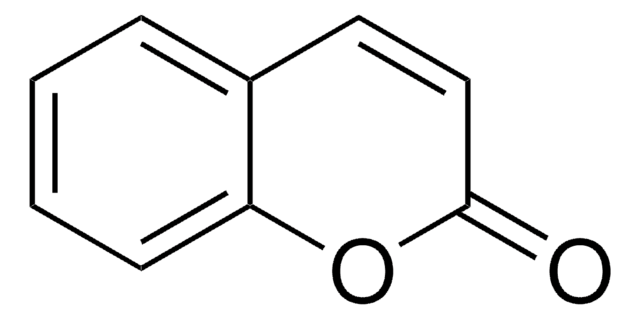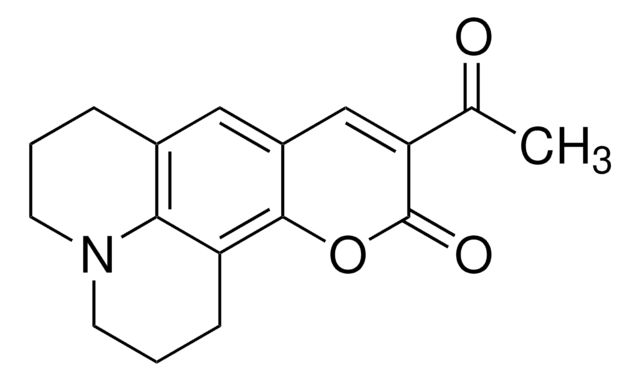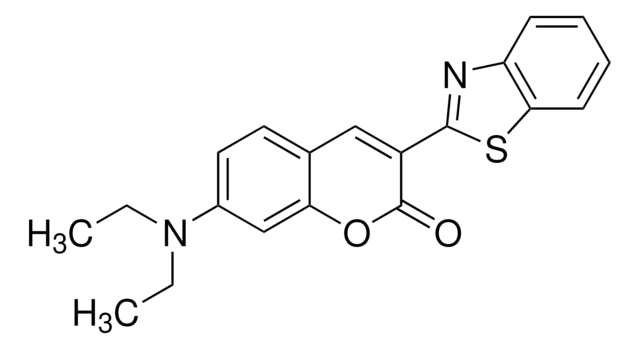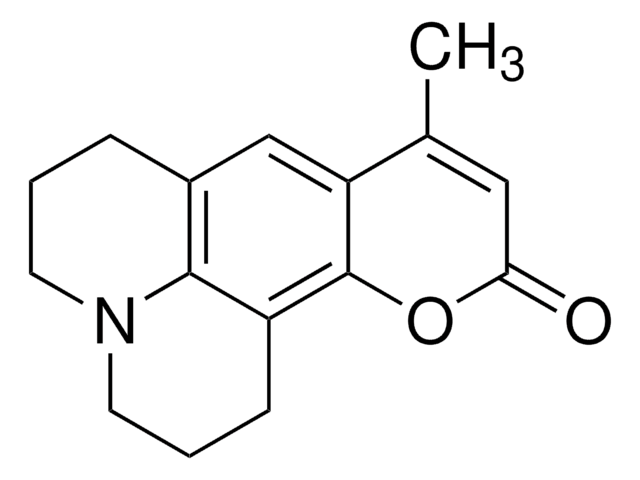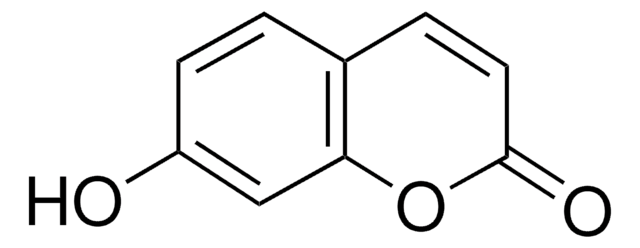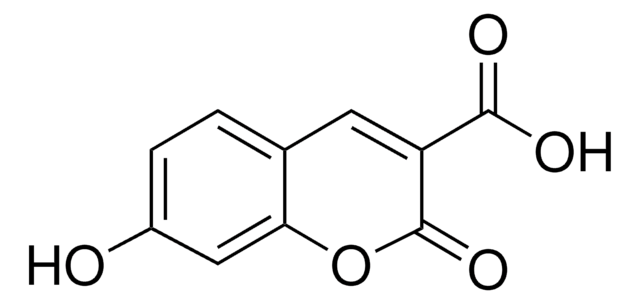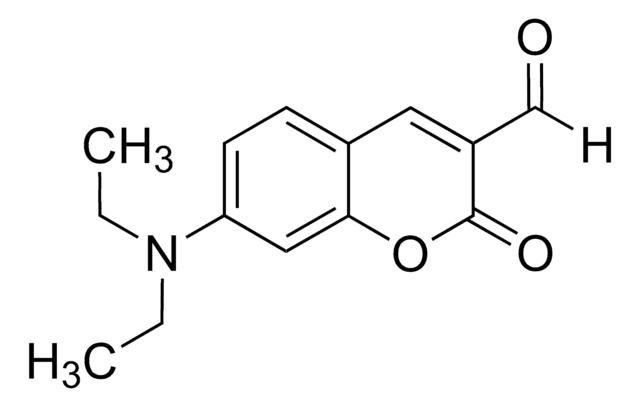All Photos(3)
About This Item
Empirical Formula (Hill Notation):
C16H15NO4
CAS Number:
Molecular Weight:
285.29
EC Number:
MDL number:
UNSPSC Code:
12171500
PubChem Substance ID:
NACRES:
NA.47
Recommended Products
form
powder
Quality Level
composition
Dye content, 97%
technique(s)
titration: suitable
mp
240 °C (lit.)
λmax
443 nm
ε (extinction coefficient)
≥26000 at 441-445 nm in ethanol at 0.01 g/L
application(s)
diagnostic assay manufacturing
hematology
histology
storage temp.
room temp
SMILES string
OC(=O)C1=Cc2cc3CCCN4CCCc(c2OC1=O)c34
InChI
1S/C16H15NO4/c18-15(19)12-8-10-7-9-3-1-5-17-6-2-4-11(13(9)17)14(10)21-16(12)20/h7-8H,1-6H2,(H,18,19)
InChI key
KCDCNGXPPGQERR-UHFFFAOYSA-N
General description
Coumarin 343 is a small hydrophilic dye. It is unable to penetrate the cell membrane by itself. Coumarin 343 is also known as coumarin 519. Depending on the pH of the medium, coumarin 343 exists in neutral and anionic forms.
Application
Coumarin 343 has been used in many different applications that include solution dynamic probes, laser dyes, and organic sensitizers in dye-sensitized solar cells.
It is suitable to study photo-induced charge injection into other metal oxides such as TiO2, ZrO2, and ZnO.
It is suitable to study photo-induced charge injection into other metal oxides such as TiO2, ZrO2, and ZnO.
Storage Class
11 - Combustible Solids
wgk_germany
WGK 3
flash_point_f
Not applicable
flash_point_c
Not applicable
ppe
Eyeshields, Gloves, type N95 (US)
Choose from one of the most recent versions:
Already Own This Product?
Find documentation for the products that you have recently purchased in the Document Library.
Customers Also Viewed
Nitin Yadav et al.
The journal of physical chemistry. B, 123(25), 5324-5336 (2019-06-28)
Reverse micelles (RMs) as soft templates have been successfully used in tailoring the structural characteristics (size and morphology) of nanomaterials that in turn have been used in various applications. In this work, we have focused on the local perturbations in
Andreas Steinegger et al.
Chemical reviews, 120(22), 12357-12489 (2020-11-05)
This is the first comprehensive review on methods and materials for use in optical sensing of pH values and on applications of such sensors. The Review starts with an introduction that contains subsections on the definition of the pH value
Ying-Feng Hsu et al.
Physical chemistry chemical physics : PCCP, 18(43), 30086-30092 (2016-11-03)
We performed comprehensive studies on the photoluminescence properties of the carbon dots prepared from citric acid (C-dots
C B Nelson et al.
Physical chemistry chemical physics : PCCP, 19(44), 29991-29997 (2017-11-03)
Zinc oxide (ZnO) in the form of nanoparticles (NPs) is an important nanomaterial due to its catalytic and optoelectronic properties. An interesting aspect of ZnO is that its crystal structure is anisotropic, which leads to a strong 2nd order nonlinear
Zaki S Seddigi et al.
Scientific reports, 6, 23209-23209 (2016-03-18)
Four key parameters namely light trapping, density of light harvesting centre, photoinduced electron injection and electron transport without self-recombination are universally important across all kinds of solar cells. In the present study, we have considered the parameters in the context
Our team of scientists has experience in all areas of research including Life Science, Material Science, Chemical Synthesis, Chromatography, Analytical and many others.
Contact Technical Service

